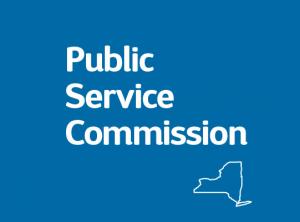Meter Seizures in New York

The New York Public Service Commission dismissed a consumer protection group's petition seeking an investigation into civil actions commenced by ConEd to recover through court proceedings metering equipment from customers who fail to pay their bills. The advocacy group, Public Utility Law Project (PULP), had alleged that the utility's actions in "replevin" had not been designed or carried out in a manner that adequately protects customer rights. The movant contended that ConEd's confiscatory actions may be in violation of the state's energy consumer protection laws.
Replevin is a civil action invoked in an effort to repossess personal property that is wrongfully or unlawfully held. In ConEd's case, the utility had argued that because it owns the meters used to measure energy usage, it is legal for it to pursue termination of a customer's service for nonpayment of arrears by seizing the customer's electric meter after filing a petition for replevin.
ConEd expounded that under New York law, utilities may take back a meter when a customer is scheduled for termination and the company cannot otherwise obtain access to lock the meter. After an action in replevin is brought by a utility in civil court, the court may grant an order of seizure.
In answering PULP's complaint, the commission said that it saw no evidence of unlawful wrongdoing by the utility, nor had its staff identified any facts warranting the provision of retrospective remedies. Nevertheless, the commission found that additional measures are needed so as to improve transparency and accountability in the utility's replevin actions. It therefore directed ConEd to implement modifications to its customer service procedures with regard to negotiation of deferred payment agreements.
In support of its conclusion that no formal investigation of the company's actions in replevin was necessary, the commission pointed out that replevin is an extraordinary remedy that requires strict compliance with both civil law and service termination rules and regulations. The commission explained further that its staff had responded to PULP's petition by conducting on-site observations of voluntary informal conferences held in advance of court proceedings and by reviewing Con-Ed's replevin complaints and associated accounts.
Moreover, the commission stressed that requests that it oppose issuances of pre-judgment seizure orders or require that civil court proceedings not occur in or near civil courts is both inappropriate and outside its purview. Re Public Utility Law Project of New York, Inc., Case 16-M-0501, Aug. 2, 2017 (N.Y.P.S.C.).



